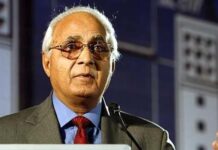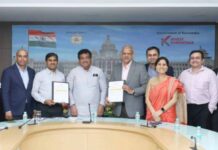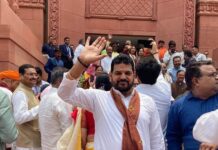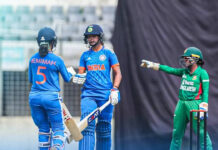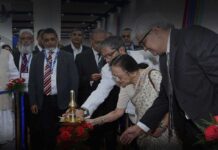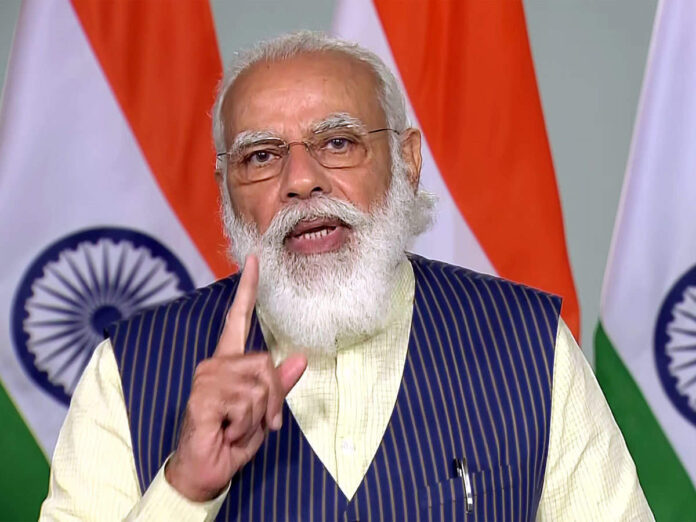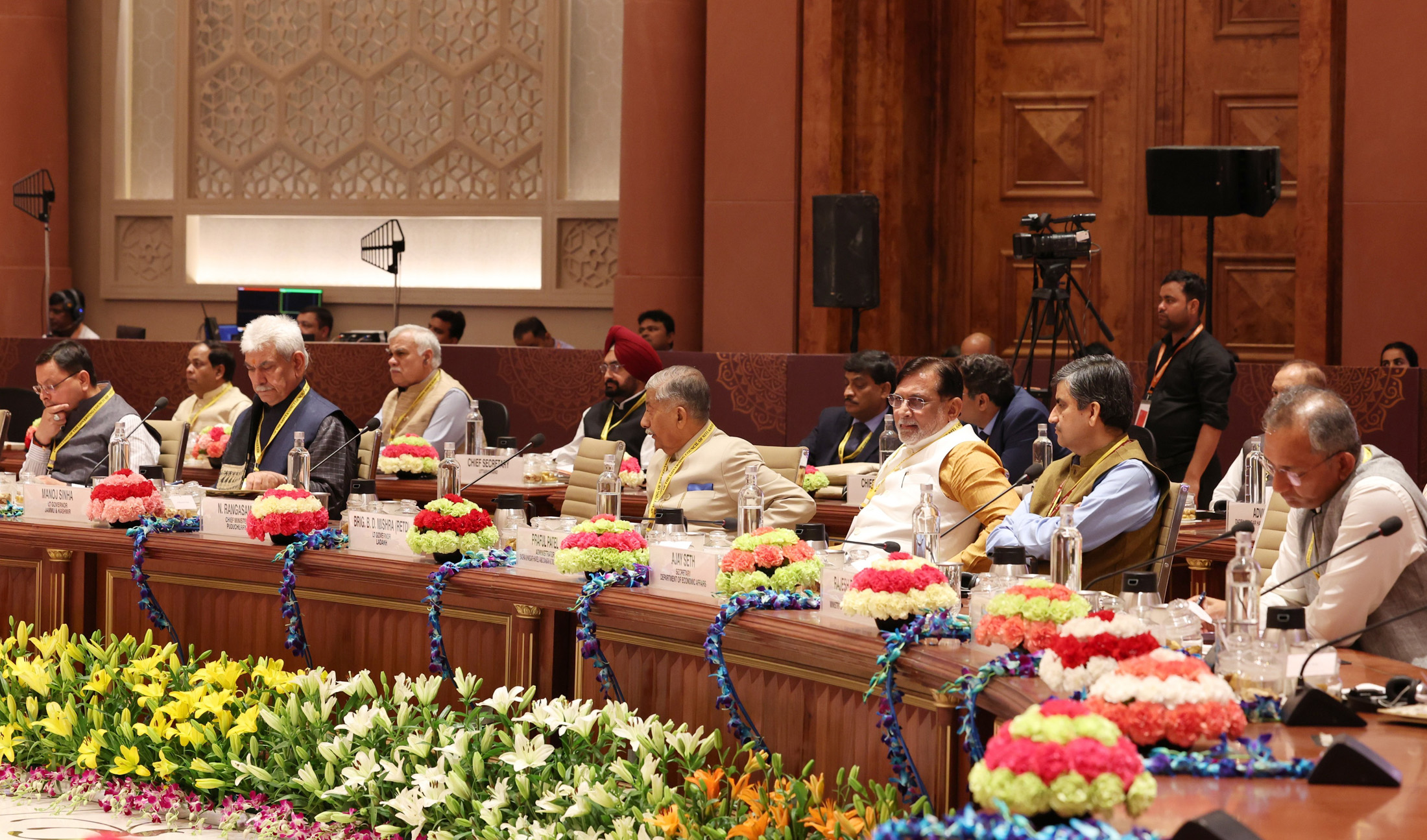In a significant gathering of the Niti Aayog’s 8th governing council meeting, Prime Minister Narendra Modi emphasized the need for a “ground-up” approach to propel India into a developed economy by 2047. However, the event was marred by the absence of 11 chief ministers, prompting the ruling Bharatiya Janata Party (BJP) to express disappointment over the boycott. The meeting focused on several crucial themes such as Viksit Bharat@2047, MSMEs, infrastructure and investments, minimising compliances, women empowerment, health and nutrition, skills, and Gati Shakti for area development and social infrastructure.
During his address, PM Modi stressed the importance of achieving India’s goal of becoming a developed nation while maintaining fiscal prudence. He emphasized that the actions of the present generation should not burden future generations. PM Modi also highlighted that India is currently at a pivotal “take-off stage” and urged the country to seize the unprecedented opportunities at hand.
PM Modi Urges “Ground-Up” Approach to Transform India by 2047, Opposition CMs Skip Niti Meeting
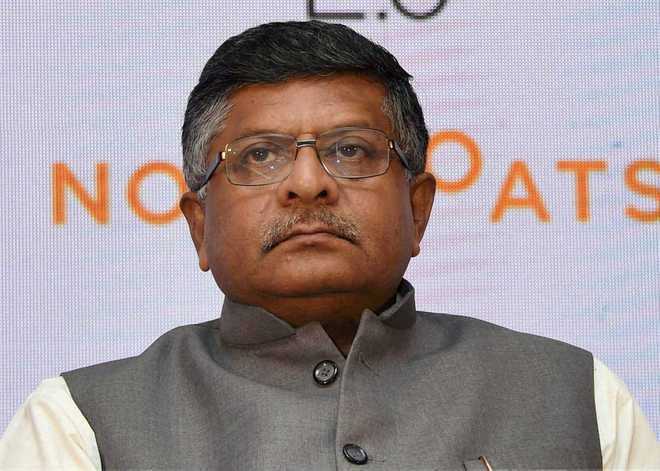 However, the absence of 11 chief ministers from the meeting cast a shadow over the proceedings, leading the BJP to deem the boycott as “unfortunate.” The chief ministers who chose not to attend included Arvind Kejriwal (Delhi), Bhagwant Mann (Punjab), Mamata Banerjee (West Bengal), Nitish Kumar (Bihar), K Chandrashekar Rao (Telangana), MK Stalin (Tamil Nadu), Ashok Gehlot (Rajasthan), Siddaramaiah (Karnataka), Pinarayi Vijayan (Kerala), Naveen Patnaik (Odisha), and N Biren Singh (Manipur). Senior BJP leader Ravi Shankar Prasad criticized the chief ministers’ absence, stating that their failure to participate meant they were neglecting the interests of their respective states.
However, the absence of 11 chief ministers from the meeting cast a shadow over the proceedings, leading the BJP to deem the boycott as “unfortunate.” The chief ministers who chose not to attend included Arvind Kejriwal (Delhi), Bhagwant Mann (Punjab), Mamata Banerjee (West Bengal), Nitish Kumar (Bihar), K Chandrashekar Rao (Telangana), MK Stalin (Tamil Nadu), Ashok Gehlot (Rajasthan), Siddaramaiah (Karnataka), Pinarayi Vijayan (Kerala), Naveen Patnaik (Odisha), and N Biren Singh (Manipur). Senior BJP leader Ravi Shankar Prasad criticized the chief ministers’ absence, stating that their failure to participate meant they were neglecting the interests of their respective states.
The governing council meeting aimed to foster collaboration between the central and state governments. Niti Aayog CEO BVR Subrahmanyam, briefing the media on the meeting’s developments, stated that every state would soon have an institution similar to Niti Aayog to facilitate collective decision-making between the central and state-level administrations. PM Modi underscored the significance of states’ growth for the overall progress of India, particularly in sectors like education, health, and agriculture. The Prime Minister emphasized the success of Niti Aayog as a model for effective Centre-state cooperation.
The absence of several chief ministers at the meeting occurred amidst a growing rift between the BJP-led central government and various opposition parties. These parties have demanded that President Droupadi Murmu, rather than Prime Minister Modi, inaugurate the new Parliament complex. Additionally, disagreements have arisen over the Centre’s May 19 ordinance, which restored control over services in Delhi to the Centre, overriding a Supreme Court order.
Arvind Kejriwal, in a letter to the Prime Minister, expressed his “boycott” of the meeting to protest against the “undemocratic and unconstitutional” ordinance. Bhagwant Mann, from the Aam Aadmi Party (AAP), echoed similar sentiments, citing the Union government’s disregard for issues related to farmers as his reason for skipping the council meeting. Mamata Banerjee, the Chief Minister of West Bengal, proposed the names of her representatives, but the Centre stated that only chief ministers could attend the meeting.
Prime Minister Modi has called for a “bottom-up” strategy to revolutionize India by 2047, while Chief Ministers from the opposition parties did not attend the Niti Aayog meeting.
Other chief ministers cited prior commitments for their inability to attend. Nitish Kumar and K Chandrashekar Rao had conflicting engagements, while MK Stalin was on a trip to Singapore and Japan. Ashok Gehlot’s absence was due to his health, and Naveen Patnaik was occupied with meetings in his state. Manipur CM Biren Singh was dealing with ethnic violence in his region.
The BJP condemned the opposition’s protest, questioning the extent to which they would go to oppose PM Modi. The party expressed concern over the opposition’s refusal to attend the foundation stone-laying ceremony and the upcoming inauguration of the new Parliament complex, emphasizing the growing international popularity of PM Modi.
The Niti Aayog’s governing council, chaired by the Prime Minister, includes all state chief ministers and lieutenant governors (LGs) of Union territories. Representatives from 19 states and six Union territories attended the meeting. During the deliberations, Chhattisgarh CM Bhupesh Baghel sought the council’s intervention in making iron ore available to units in his state. Goa CM Pramod Sawant expressed gratitude to the PM for assigning a significant number of G20 and SCO meetings to Goa.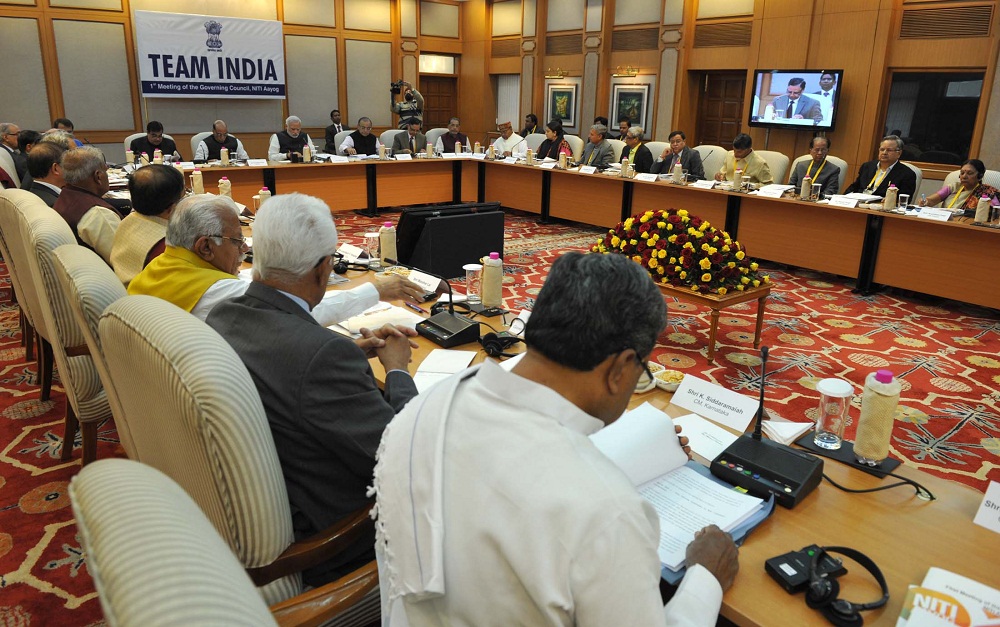
Jharkhand CM Hemant Soren requested central assistance in developing the state’s road network, and Andhra Pradesh CM YS Jagan Mohan Reddy called for cost reductions in logistics. CEO Subrahmanyam stated that the states which boycotted the meeting missed out on enriching discussions, and their absence resulted in a loss for them. However, he reassured that Niti Aayog would continue to support and collaborate with all states on various issues.
The meeting revolved around eight key themes, including Viksit Bharat@2047, MSMEs, infrastructure and investments, minimising compliances, women empowerment, health and nutrition, skills, and Gati Shakti for area development and social infrastructure. PM Modi’s opening remarks highlighted India’s transition from basic infrastructure development to advanced and integrated infrastructure, exemplified by the ambitious Gati Shakti Master Plan aimed at enhancing multi-modal connectivity.
The Niti Aayog’s aspirational districts program (ADP), focusing on accelerating development in 112 districts with historically poor socio-economic indicators, served as a model for Centre-state cooperation. The PM also mentioned the upcoming aspirational blocks program. It is worth noting that India is currently classified as a lower-middle-income country, with a gross national income per capita (GNI) of $2170 according to the World Bank. Developed economies typically have a GNI per capita of $13205 according to the World Bank’s classification.



